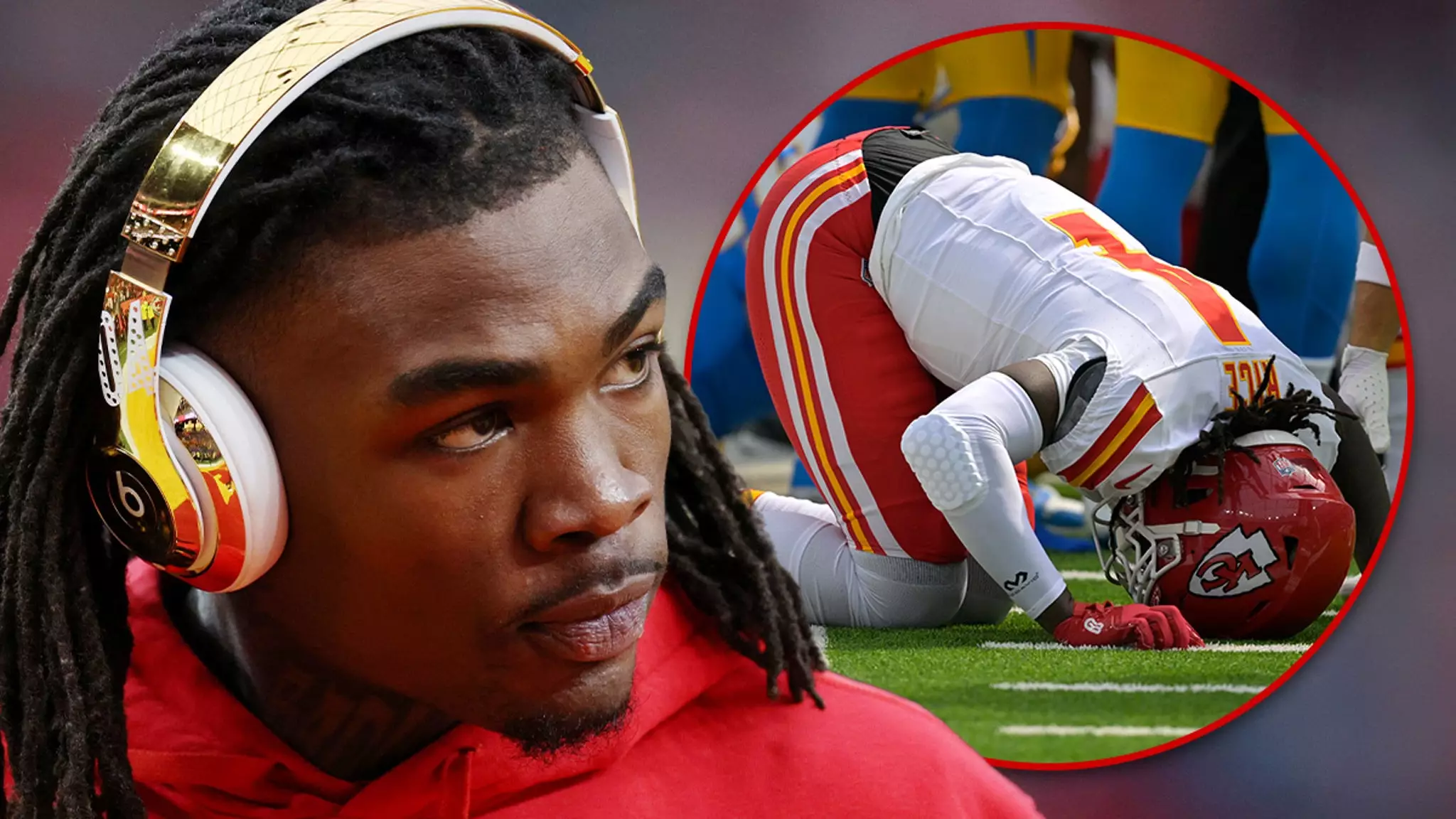The recent car accident involving NFL player Rashee Rice has opened a floodgate of discussions about accountability and the ramifications of injuries, both physical and emotional. The incident, which occurred on March 30, sent shockwaves not just through Rice’s career, but also through the lives of Edvard Petrovskiy and Irina Gromova, the victims whose lives were irrevocably altered by this tragic event. Both individuals have alleged that they suffered significant injuries as a result of the crash, which has sparked an ongoing legal battle with Rice and his companion.
Petrovskiy and Gromova have outlined severe consequences from the accident, including brain trauma, facial lacerations, deep bruising, and internal bleeding. These profound claims are not merely medical; they represent fundamental disruptions in their daily lives, careers, and emotional well-being. The plaintiffs have set their sights on a staggering sum of $10 million as punitive damages, a figure that underscores the seriousness of their grievances. The swiftness of their legal approach reflects a sense of urgency to address the physical and psychological impacts of their injuries, which they believe warrant financial compensation.
Despite the intense emotions surrounding this case, the wheels of justice turn slowly. Court records indicate that the trial is not scheduled to commence until June 2025, a timeline that could feel like an eternity for those seeking resolution. For Petrovskiy and Gromova, this delay only amplifies their suffering and frustration, as they navigate life’s challenges while still undergoing treatment for their visible and invisible wounds.
Recently, Sanjay S. Mathur, the attorney representing the plaintiffs, expressed hope that Rice’s own knee injury could catalyze a more empathetic dialogue regarding the case. Mathur articulated that understanding can stem from shared experiences of injury, as both Rice and the plaintiffs are now familiar with the burdens that come with trauma. His statements reveal a nuanced understanding of how injuries can fundamentally alter lives and challenge one’s identity, emphasizing that recognition and acceptance of responsibility are paramount in any resolution.
Rashee Rice, who has displayed remorse for his role in the crash, now finds himself in a complicated situation. While recovering from a knee injury that will keep him off the field for several games, he also faces serious legal implications from the spring wreck. Not only is he dealing with potential criminal charges, but also the looming threat of a suspension from the NFL. His trajectory as a promising young wide receiver has thus been interrupted, forced to grapple with the consequences of both his actions and their ramifications on his physical state.
As this case unfolds, it serves as a stark reminder of the need for personal accountability in all facets of life, especially among those in the public eye. The intertwining of sports, legal issues, and personal injury underscores a larger societal issue surrounding responsibility and the acknowledgement of harm caused. For Petrovskiy and Gromova, achieving a resolution is about more than just monetary compensation; it’s about obtaining recognition for their suffering and reclaiming their narrative following an event that turned their lives upside down. As the legal proceedings progress, the outcome will likely resonate far beyond the courtroom, shaping discussions on injury, accountability, and recovery in both the sports world and society at large.

Leave a Reply